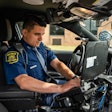Concerned parents and other adults want to respond sensitively and appropriately to our country’s children, helping them to feel physically and emotionally safe. Children under the age of five won’t fully understand what has happened, but will pick up on the reactions of those around them and act accordingly.
Adolescents will respond much the same as adults. The following tips will help provide a supportive and stable environment for the children of this nation.
Be calm. Children mirror the reactions of their parents and caregivers. It is fine to share feelings of sorrow, which can encourage the children to express their own sadness. However, express your more intense reactions such as horror and outrage with other adults, outside the presence of the children.
Tell the truth but don’t give more information than is requested. Allow children to ask questions, listen carefully and thoughtfully, and then answer them. Don’t be surprised if they ask a question, and then ask it again later. They are only trying to reassure themselves and feel more secure. Children deal with trauma in small segments. Never force a child to talk about it if he or she doesn’t want to.
Stay home during the evenings. Limit separation as a much as possible for a few days.
Allow more telephone contact than usual. Encourage your children to call you at work or wherever you may be if they feel afraid or if something upsetting has happened.
Reassure the children that you are their protector. Tell them that not only you, but everyone in the nation is working hard to see that something like this never happens again. If your child seems more fearful than usual about going to bed, encourage sleeping with favorite toys, blankets, or perhaps allowing a pet to stay in the room. Use nightlights.
Limit television to a few segments and sit with your child as it is viewed. Children should not be exposed to terrifying imagery by themselves. Touch them or hold them if they will allow it.
Refrain from calling a child "a baby" if he or she is crying and fearful. The child is reacting authentically. Instead, comfort and support them rather than tell children to be "big boys and girls."
Recognize that some children will reenact what happened through play or artwork. It can be empowering for children to play with toy fire trucks and to use the ladders to rescue people and put out fires. Some may draw rescue efforts. If you see re-enacting play or art, ask your child to talk about it with you.
Encourage the children to help. Children may want to collect money to send to one of the organizations providing direct assistance. They may want to make a poster for the teacher’s lounge of their school asking adults to donate blood. They may want to write a note or color a picture for someone in the community who is directly affected by the tragedy. They may want to say a prayer for those who are hurt.
Some children, especially young children, may regress for a while. Previously mastered skills such as sleeping alone, dressing without help, and toilet training may be lost for a while. Children should not be disciplined for these regressions.
Watch for signs of more serious problems. These might include failing grades, avoiding relationships other than those with whom they feel most secure, general irritability, sleeping problems, and eating significantly more or less than usual. Seek professional assistance through your child’s school or an outside agency if you are concerned.
Additional information and trauma recovery tips and information can be found at:
www.madd.org , www.ncvc.org , www.pomc.org , or www.try-nova.org.












